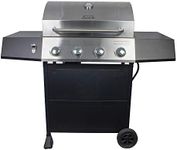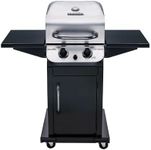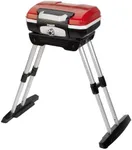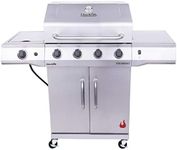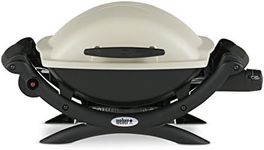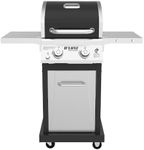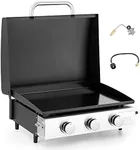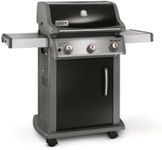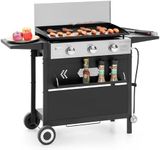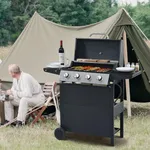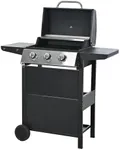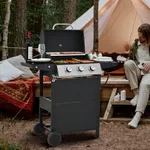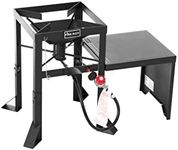Buying Guide for the Best Cheap Gas Grills
Choosing the right gas grill can make a big difference in your outdoor cooking experience. When looking for a cheap gas grill, it's important to consider several key specifications to ensure you get the best value for your money. Understanding these specs will help you make an informed decision and find a grill that meets your needs without breaking the bank.BTUs (British Thermal Units)BTUs measure the amount of heat a grill can produce. This spec is important because it affects how quickly and evenly your food will cook. For small grills, 10,000 to 20,000 BTUs is usually sufficient. Medium-sized grills typically need 20,000 to 40,000 BTUs, while larger grills may require 40,000 BTUs or more. If you plan to cook for a small family or a few friends, a grill with lower BTUs will suffice. For larger gatherings or more frequent use, opt for a grill with higher BTUs.
Cooking AreaThe cooking area is the total space available for grilling, usually measured in square inches. This spec is important because it determines how much food you can cook at once. Small grills typically offer 200-400 square inches, medium grills provide 400-600 square inches, and large grills offer 600 square inches or more. If you usually cook for a small group, a smaller cooking area will be adequate. For larger families or entertaining guests, a larger cooking area is more practical.
Number of BurnersThe number of burners affects how you can control the heat and cook different types of food simultaneously. This spec is important for versatility in cooking. Grills can have anywhere from one to six burners. A single burner is suitable for basic grilling, while two to three burners allow for more control and the ability to create different heat zones. Four or more burners are ideal for those who want to cook a variety of foods at different temperatures at the same time. Choose based on how much control you need and the types of food you plan to grill.
Material and Build QualityThe material and build quality of a grill affect its durability and heat retention. This spec is important for the longevity and performance of the grill. Common materials include stainless steel, cast iron, and aluminum. Stainless steel is durable and resistant to rust, cast iron retains heat well but requires more maintenance, and aluminum is lightweight and resistant to corrosion. If you want a grill that lasts longer and performs well, look for one made of high-quality materials. Consider how often you will use the grill and the conditions it will be exposed to.
Ignition SystemThe ignition system is how you start the grill. This spec is important for convenience and reliability. Common types include push-button, rotary, and electronic ignition. Push-button and rotary ignitions are manual and require a bit more effort, while electronic ignitions are more convenient and reliable. If you want a hassle-free start, opt for a grill with an electronic ignition system. Consider how often you will use the grill and how important ease of use is to you.
PortabilityPortability refers to how easy it is to move the grill around. This spec is important if you plan to take your grill to different locations or need to store it away when not in use. Portable grills are usually smaller and lighter, with features like wheels or foldable legs. If you need a grill for camping, tailgating, or small outdoor spaces, look for a portable model. If you have a permanent spot for your grill, portability may be less of a concern.
